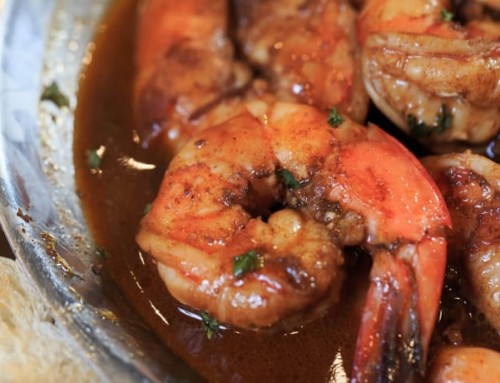The Devil made me do it!
Faust is the age-old story of selling your soul to Satan for youth, happiness, and love. One of the masterpieces of French lyric opera, Gounod’s Faust is a profusion of celebrated arias and non-stop drama. With images that are at once delightful and provocative, it is easy to see why this work has become one of the most performed operas around the world.

Time: Friday 8pm-11pm, Sunday 2:30pm – 4:30pm
Location: Mahalia Jackson Theater
Cost: Start at $26
Website: http://neworleansopera.org/
FAUST Synopsis
ACT I
After poring over his books all night, the aged scholar Dr. Faust protests that a lifetime in pursuit of wisdom has not granted him any answers to the meaning of life. He is tired of living and welcomes death; since it will not come for him, he prepares some poison, determined to be master of his own fate. As he is about to drink, voices singing outside his study remind him of spring and of life’s simple pleasures. At first he tries to ignore them, but at the mention of God, he pauses. Reflecting that God will neither give him back his youth nor enlighten his old age, he calls on Satan in despair. The devil Mephistopheles appears, dressed as a man of the world, and assures the astonished Faust that he can be of service. Asked what he wants, Faust says he wishes to be young again. The devil tells him that this can be done, but Faust must sign away his soul in exchange. The aged scholar balks at this; however, when Mephistopheles conjures up a vision of the beautiful Marguerite at her spinning wheel, Faust is charmed and quickly complies. Mephistopheles prepares a youth potion for the doctor, who is transformed into a young man. Looking forward to adventure, the two rush off.
ACT II
At the village fair nearby, students toast the pleasures of wine and beer. Soldiers, burghers, and young girls join the throng, arousing the disapproval of older matrons. One of the soldiers, Valentin, a captain, holds a medal his sister has given him to protect him on the battlefield. He is the brother of Marguerite, and since their mother is dead, he worries that no one will look after his sister during his absence. Siebel, a young admirer of hers, says he will. Valentin offers a prayer to God—first for guidance in battle, then for Marguerite’s safety (Avant). The serious mood is dispelled by a student, Wagner, who climbs on a table to offer a ditty about a rat that lived in a wine cellar. He has scarcely begun when Mephistopheles appears, proposing a song of his own. Making way for the stranger, the Students hear his blasphemous ballad in praise of the legendary Golden Calf, worshiped by young and old as Satan calls the tune (Le veau d’or). When he reads fortunes for some of the bystanders—Wagner will die in battle, Siebel will wither any flower he touches, Valentin will meet his death at the hands of a certain man—they begin to look on him with suspicion, and when he miraculously causes wine to flow from the sign in front of the inn, they know he has supernatural powers. Valentin fearlessly challenges him and—when Mephistopheles causes his sword to break—holds the handle up in the sign of the cross, momentarily cowing the devil. Left alone, Faust and Mephistopheles plan their next move. Faust wants to meet the girl of the vision, so Mephistopheles arranges for her to arrive with another group of townspeople, who enter to begin a waltz. As Mephistopheles chases Siebel away, Faust approaches Marguerite and offers her his arm, which she refuses. The waltz continues as Mephistopheles assures Faust that he does not have to take no for an answer.
ACT III
In the garden outside Marguerite’s cottage that evening, Siebel decides to offer her a bouquet (Faites-lui), but thanks to Mephistopheles’ spell, every flower withers when he picks it. Then he dips his fingers in a font of holy water where Marguerite prays every evening, and the spell is gone. Faust and Mephistopheles enter quietly and hide while Siebel makes the bouquet and leaves it. Mephistopheles declares he will fetch some precious gift for Marguerite. Left alone, Faust hails the dwelling place of the beautiful, innocent girl for whom he now feels such love (Salut, demeure). Mephistopheles returns with a casket of jewels, and when Faust protests he feels unworthy of a girl of such virtue, the demon himself leaves the gift for Marguerite, then leads Faust back into hiding. Marguerite comes into the garden and sings to herself the ballad of the king of Thule, who remained faithful all his life to his bride who had died in youth (Il etait un roi de Thule), interspersing in the verses remarks about the young man (Faust) who spoke to her at the fair. She finds the bouquet, then the jewel box, which for a moment she hesitates to open. Curiosity gets the better of her, and she tries on some of the jewels, looking in a hand mirror from the box and imagining herself as a great lady (Ah! je ris). A matronly neighbor, Dame Marthe, comes in and admires the jewels. Mephistopheles steps out of the shadows and draws Marthe aside, giving her news of her husband’s death and pretending to court her himself, so that Faust can be alone with Marguerite. The girl removes the jewels and protests to Faust that she does not deserve such a gift; then she speaks of her brother’s absence, her mother’s death, and the loss of her younger sister. Though strongly attracted to her suitor, she tells him he must not stay. Seeing this, Mephistopheles stands apart and invokes a spell over the garden, calling on night and love to conceal and encourage the lovers (O nuit). Faust and Marguerite exchange tender words (Laisse-moi contempler), and she plays a game of “he loves me, he loves me not” with a daisy. Having thus broached the subject of love, the two declare their feelings more passionately (O nuit d’amour), but Marguerite still insists that Faust must leave. Respecting her purity, he is ready to go when Mephistopheles mocks his soft headedness and sends him back to the embrace of Marguerite, who has opened her window and expressed her impatience to see him the next day (Il m’aime…quell trouble dans mon coeur).
ACT IV
Time has passed and Marguerite sits spinning in her room while voices outside taunt her about the disappearance of her lover. She reflects sadly that Faust shows no signs of returning to her (Il ne revient pas), whereupon Siebel, trying to share her misfortune, offers his faithful friendship (Si le bouheur).
The dishonored Marguerite comes to church to ask forgiveness for her sin.
She is haunted, however, by a vision of Mephistopheles, who says eternal damnation is her lot (Souviens-toi).
In the public square, Valentin and his fellow soldiers return from the front in high spirits (Gloire immortelle de nos aieux), but Siebel tries to keep him from entering his home. Perplexed by Siebel’s evasive answers, Valentin goes in, and Faust enters the square with Mephistopheles. Faust calls Marguerite’s name; when there is no reply, Mephistopheles launches into a mocking serenade, advising a girl who is being courted not to give her suitor any favors until she has a ring on her finger (Vous qui faites). Valentin rushes angrily out of the house and smashes the devil’s guitar with his sword, demanding to know which of the two newcomers will answer for Marguerite’s shame. In the duel that follows, Faust, backed up by Mephistopheles, quickly dispatches Valentin and escapes as people approach. Valentin dies cursing his sister.
ACT V
Mephistopheles leads Faust to the Bracken, a peak in the Harz Mountains, where the Walpurgis Night is being celebrated. Spirits and phantoms gather, and celebrated beauties of the past appear amid the dancers and revelers, but Faust remains preoccupied with thoughts of Marguerite, whom he imagines he sees wearing a red ribbon—like the cut of an executioner’s ax—around her neck. Finally he insists that Mephistopheles take him to her.
In prison, Marguerite lies condemned for the death of her illegitimate baby.
Mephistopheles leads Faust to the sleeping girl and says he will wait outside. She appears happy to see him again (Oui, c’est toi), and they reminisce about the beginning of their romance, but Mephistopheles interrupts, saying they must escape. Seeing the evil one, Marguerite falls to her knees and prays for salvation as the two plead with her in vain to accompany them (trio: Anges purs). With daybreak, Mephistopheles must drag away his supposed prize, Faust, whom Marguerite sees at last as an object of horror. The devil cries that she too is damned, bur a heavenly choir proclaims her saved, and her soul ascends to heaven, as Faust and Mephistopheles watch in despair and impotence.




